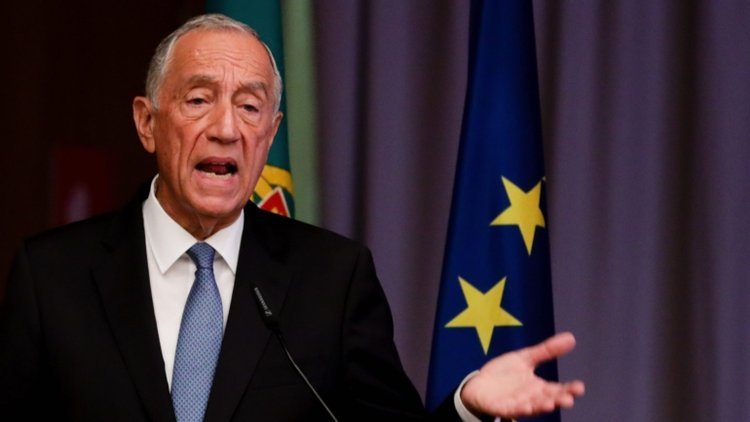“As far as you are concerned, you have the task and the responsibility today to take this path without limits to the horizon, without giving up in principle, while opening up perspective in the same way it has happened for 46 years,” Marcelo Rebelo emphasized. De Souza, referring in part to the legacy of immunologist Maria de Souza.
During the session that celebrated the 46th anniversary of the International Center for Tax Statistics, where Maria de Souza, an immunology expert, was honored, the head of state left an appeal to the University of Porto Institute to remain “an example of freedom, democracy, community service, demand, rigor and opening doors.”
He stressed that “the 46-year-old school remains the school of the future.”
Marcelo Rebelo de Souza recalled the legacy of the immunologist, who died last year as a victim of Covid-19 virus, and highlighted how “she believed the future was being built today and how she never gave up the fight.”
“He leaves us the legacy that we must know about everything in order to get to know someone,” he said, noting that he was affected by “the gentle clarity with which Maria de Souza was preparing to leave.”
The Minister of Science, Technology and Higher Education, Manuel Hitor, who also attended the session, indicated that Maria de Sousa “transmitted the Portuguese language, culture and thought to the whole world.”
“Today we launched a book that resulted from reflections with Maria and is related to photography, but it poses questions to us. Those who do not ask questions do not have answers,” the minister said, adding that the book depicts the mobilization of Portuguese science in the face of the second wave of Covid-19.
Manuel Hitor stressed that “science is a cure, but it is above all a battlefield,” and he also highlighted the role of Portuguese doctors and technicians who “managed to fight.”
The session included the unveiling of a shield in honor of the immunologist, born in Lisbon in 1939, who, in addition to the President of the Republic and the Minister of Science, the President of the University of Porto Antonio de Sousa Pereira and its director from ICBAS, Henrique Cyrne de Carvalho.
Scientist, writer and professor Maria de Souza taught in England, Scotland and the United States, after leaving Portugal while still in Estado Novo, in 1964. She returned already in the democratic period, in 1985, becoming full professor of Immunology from the Institute of Biomedical Sciences Abel Salazar in Porto.
She was Professor Emeritus at the University of Porto and Honorary Researcher at i3S – Institute for Research and Innovation in Health, and was also a member of the Pessoa Prize jury.
Their findings were published in the Journal of Experimental Medicine and Nature, respectively, in January and December 1966. The title of the first scientific article with the findings of Maria de Souza is precisely “The thymus-dependent regions of the lymph organs in newborn mice. Thymectomy
Later, in 1971, Maria de Souza gave a name to the phenomenon of the migration of lymphocytes of various origins – from the thymus and bone marrow, where other types of lymphocytes form – to the specific microenvironments in the peripheral lymph organs and there. In well-defined areas. He called it “environmental regression”.
He was awarded the Bial de Medicina Grand Prix in 1995, the Incentive Award for Excellence in 2004 and the Gold Medal for Scientific Merit in 2009, both awarded by the Ministry of Science, Technology and Higher Education. This was followed by the 2011 University of Coimbra Prize and the University of Lisbon Prize 2017.
She was honored by three Presidents of the Republic: in 1995 by Mario Soares with the rank of Senior Officer of the Order of the Infante D. Henrique, in 2012 by Aníbal Kavako Silva in the rank of Senior Officer of the Santiago da Military Order. Espada and in 2016 by Marcelo Rebelo de Sousa with the Grand Cross of the Sant’Iago da Espada Military Order.

“Wannabe internet buff. Future teen idol. Hardcore zombie guru. Gamer. Avid creator. Entrepreneur. Bacon ninja.”

